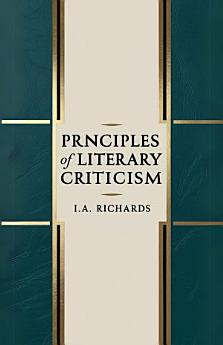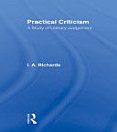Principles of literary criticism: Foundations of Modern Literary Theory
May 2025 · DD Books
Ebook
311
Pages
reportRatings and reviews aren’t verified Learn More
About this ebook
Principles of Literary Criticism by I. A. Richards is a groundbreaking study that transformed twentieth‑century literary theory by linking the close reading of texts to psychology, semantics, and the reader’s emotional response. First published in 1924 and still a touchstone for students and scholars, this influential work explains how meaning is generated, how ambiguity enriches poetry, and why literature matters as a powerful instrument for ordering human experience. Richards introduces key concepts—such as “synesthetic rhythm,” “stock response,” and the “communication triangle”—that continue to shape modern criticism, making this volume essential for anyone who wants to understand how language, thought, and feeling interact on the page. Ivor Armstrong Richards (1893–1979), one of the most innovative critics of the modern era, taught at the University of Cambridge and later at Harvard, where he helped establish the discipline of English as a rigorous analytic science. A pioneer of New Criticism and practical criticism, Richards authored classic texts including The Meaning of Meaning (with C. K. Ogden) and Practical Criticism, and his theories influenced everything from literary pedagogy to the design of Basic English and early multimedia language labs. His interdisciplinary vision—combining linguistics, psychology, and education—continues to reverberate across literary studies, rhetoric, and communication theory. Blending lucid prose with trailblazing insight, Principles of Literary Criticism remains a vital resource for writers, teachers, and curious readers seeking to deepen their appreciation of poetry, fiction, and the interpretive act itself. Download this definitive edition on Google Play Books to explore Richards’s timeless guidance on how to read, analyze, and truly feel literature.
Rate this ebook
Tell us what you think.
Reading information
Smartphones and tablets
Install the Google Play Books app for Android and iPad/iPhone. It syncs automatically with your account and allows you to read online or offline wherever you are.
Laptops and computers
You can listen to audiobooks purchased on Google Play using your computer's web browser.
eReaders and other devices
To read on e-ink devices like Kobo eReaders, you'll need to download a file and transfer it to your device. Follow the detailed Help Center instructions to transfer the files to supported eReaders.







